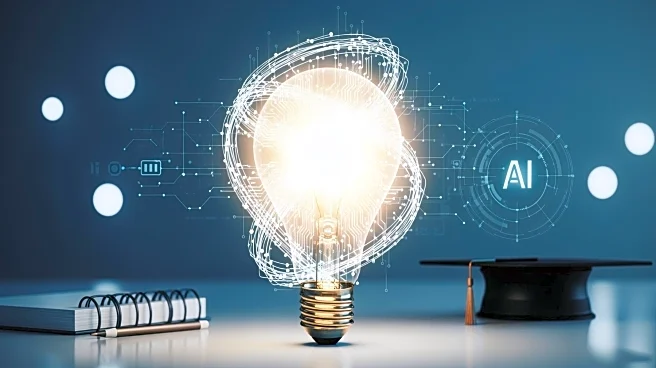What's Happening?
The AI Journal highlights the need for educational systems to focus on developing critical thinking, problem-solving, and adaptability in students to prepare them for an AI-driven future. The article argues
that while AI can enhance efficiency and innovation, it is crucial for students to possess human skills that allow them to lead rather than follow AI advancements. The emphasis is on providing learning experiences that foster curiosity and resilience, enabling students to navigate complex processes and use AI as a tool for innovation rather than a shortcut. The piece advocates for a shift away from early specialization in education, promoting a broader skill set that can adapt to various fields.
Why It's Important?
This perspective is important as it addresses the evolving role of AI in the workforce and the necessity for educational systems to adapt accordingly. By focusing on core skills like critical thinking and problem-solving, students can be better equipped to handle the challenges and opportunities presented by AI technologies. This approach could lead to a more innovative and adaptable workforce, capable of leveraging AI for societal growth rather than merely automating existing processes. The emphasis on human skills also highlights the potential for AI to complement rather than replace human capabilities, fostering a collaborative environment between technology and people.
Beyond the Headlines
The discussion also touches on broader societal implications, such as redefining productivity and work-life balance in an AI-enabled world. As AI reduces the time required for certain tasks, there is an opportunity to reconsider how productivity is measured and valued. This could lead to shifts in how time is allocated, potentially increasing focus on community involvement, creativity, and personal well-being. The article suggests that these changes could shape the future of work, emphasizing the importance of preparing students to think critically about the role of AI in their lives and careers.










